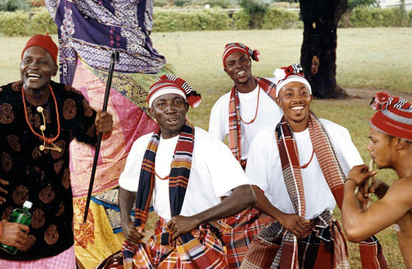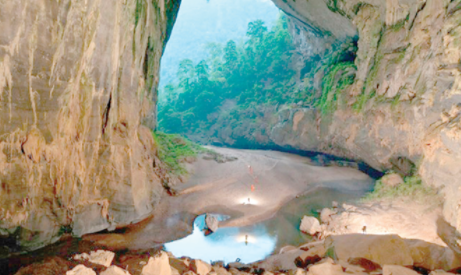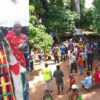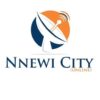African Culture and Traditions
EXPLORING CULTURAL TOURISM OPPORTUNITIES IN IGBOLAND
INTRODUCTION
When you hear the phrase “cultural tourism”, what comes to your mind? A kind of travel that is motivated by a desire to experience places, practices, and stories that are rooted in a people’s history and everyday life? You are right! Cultural tourism is a powerful engine for local jobs, pride, and conservation for a locality.
In Igbo-speaking southeastern Nigeria commonly known “Igboland” and comprising five States – Abia, Anambra, Ebonyi, Enugu and Imo, cultural tourism is not only possible, it is already happening in scattered but, promising ways. From ancient bronze workshops and sacred caves to royal ceremonies and harvest festivals, the Igbo states have tangible and living culture that can attract domestic and international visitors.
This article explains what those opportunities are, gives real-life examples of attractions and events, examines the main obstacles, and proposes practical, sustainable steps for developing cultural tourism across Igbo states.
WHY CULTURAL TOURISM MATTERS FOR IGBO STATES
For years, tourism in Nigeria has been mostly linked with natural attractions. Beaches. Waterfalls. Game reserves. But the southeastern region, home to the Igbo people, has something equally powerful to offer – our culture. From colourful festivals and masquerades to ancient crafts, historic sites, and local cuisines, Igboland is filled with stories waiting to be experienced. Yet, many of these treasures remain hidden or under-promoted.
If properly developed, cultural tourism in Igbo States could become a key driver of economic growth, community pride, and cultural preservation. Here’s why it truly matters:
Jobs and Local Income
Cultural tourism directly benefits local communities. When people travel to experience Igbo festivals like the New Yam Festival (Iri ji), traditional wrestling contests, or vibrant art fairs, they spend money on accommodation, food, souvenirs, and transport.
This means more income for artisans, tour guides, event organizers, small hotels, and food vendors. A single cultural event can keep hundreds of people busy. From drummers and dancers to tailors who sew traditional outfits. Over time, such activities can boost local economies and reduce youth unemployment across Igbo States.
Cultural Conservation
Tourism, when properly managed, helps preserve traditions that might otherwise fade away. When people pay to see traditional Igbo pottery, wood carving, music, or dances, it gives artisans and cultural custodians a reason to continue their craft.
Tourism can also fund museums, heritage centers, archives, and oral history projects that protect stories, artifacts, and ancestral knowledge for future generations. It becomes a cycle. The more people visit and appreciate Igbo culture, the stronger the motivation to keep it alive.
Place Branding and Investment
Every destination needs an identity. Something that sets it apart. Cultural tourism gives Igbo cities and states a powerful way to build that identity.
When cultural experiences like the Ofala Festivals in Onitsha and Nnewi, Mmanwu (masquerade) displays in Enugu, or Akwete weaving in Abia are well-packaged and promoted, they raise the profile of those places. This doesn’t just attract tourists, it also draws investors, event planners, and conference organizers who see potential in the region’s hospitality and creative industries.
In other words, cultural tourism can help brand Igbo States as vibrant, creative, and investment-friendly destinations.
Education and Pride
Cultural tourism isn’t just for outsiders, it also benefits local people. Many young Igbo people know little about their history or traditional customs. Seeing and participating in cultural events helps them reconnect with their roots and understand their identity better.
It also encourages community pride. When locals see visitors appreciating their dances, crafts, and festivals, they feel proud to be part of something valuable. Cultural tourism, therefore, becomes a tool for both learning and unity.
DISTINCTIVE CULTURAL ASSETS IN IGBO STATES
Here are the most significant existing assets that can become the backbone of cultural tourism offers:
Archaeological & museum heritage: E.g. Igbo-Ukwu
Igbo-Ukwu in Anambra State is world-famous for extraordinary bronze and glass artifacts unearthed in 1938 and during later excavations. The finds show advanced metalworking and complex social organization centuries ago. A major story for archaeology and African art history. The site and its local museum are cornerstones for heritage tourism in the region.
It’s tourism potential include museum tours, archaeology-themed walks, craft workshops that revive historical metalworking knowledge for demonstrative displays, and school/academic tourism.
Sacred landscapes & caves: E.g. Ogbunike and Ngwo
Ogbunike Caves (Anambra) are an extensive cave system with historical, spiritual, and ecological value. They have long been used in local ritual life and have been on UNESCO’s tentative list. The site combines a 317-step approach, underground chambers, streams, and primary forest, making it attractive to both cultural and nature tourists.
Ngwo Pine Forest (Enugu State) hosts a limestone cave with a waterfall and local sacred associations. It is already a popular picnic and short-hike destination for Nigerians. With better management and interpretation, such places can draw more visitors and extend stays in Enugu State.
Ritual, royal and seasonal festivals: E.g. Ofala & New Yam
The Ofala Festival (mostly famous in Onitsha and Nnewi but also celebrated in other communities) is a royal pageant and renewal ceremony of the Obi/Igwe involving parades, music, dance, and public audiences with the monarch. It’s highly photogenic and culturally rich for tourists seeking ceremonial spectacle.
The New Yam Festival (Iri-Ji / Iwa Ji) is celebrated across Igboland, typically around August and September, as a harvest thanksgiving that combines ritual offerings, dances, masquerades, and communal feasts. It is one of the clearest entry points for visitors to experience living Igbo culture. The most recent Afiolu Nnewi is a clear proof of what can happen when a people become more intentional with promoting and positioning their culture for tourism and all.
Historic sites tied to the transatlantic and internal histories: E.g. Arochukwu (Long Juju)
The Long-Juju shrine and Arochukwu complex in Abia State contain caves, shrine structures, and slave-route histories. They are recognized for their historical and spiritual significance and are listed on UNESCO’s tentative sites. These sites can anchor history tours that discuss pre-colonial governance, oracular systems, and colonial encounters.
Living arts, masquerade and performance: E.g. Ijele, Mmanwu, textile arts
Masquerades, traditional music, and fashion displays are among the most spectacular living Igbo traditions. Craft clusters such as woodcarvers, mask-makers, beaders, weavers, and tailors exist in many towns and can be organized into craft trails that allow visitors to watch and purchase authentic works.
Creative scene and literature festivals
Recent cultural events and literature festivals in Enugu and elsewhere which bring writers, artists, and audiences together show the rising cultural infrastructure and appetite for cultural programming that can be packaged for tourists. These events also provide content for literary tourism, e.g. visiting writers’ towns, exhibitions, readings.
REAL-LIFE EXAMPLES AND SHORT CASE STUDIES
Ogbunike Caves: Symbols of Heritage, Ritual, And Tourism
Ogbunike caves are limestone caves used for centuries for worship, refuge, and ritual. The site retains forest cover and an annual commemoration festival (Ime Ogbe). It appears on UNESCO’s tentative list, underlining its historical and cultural value.
Ogbunike caves can be developed through professional interpretive signage, trained local guides who can explain the ritual history without trivializing sacred practices, a small visitor center with local craft sales, and controlled pathways to protect the ecosystem.
Igbo-Ukwu: Where Archaeology Meets Storytelling
Igbo-ukwu stands as a unique archaeological record of a sophisticated early Igbo society with bronzes, beads, and ritual artifacts. The local museum and National Museum collections are educational magnets.
To get Igbo-Ukwu to that status that would make it a prideful site, the museum displays need to be upgraded; a guided “dig-site” style trails should be created; universities should be collaborated for visiting archaeology weeks, and multilingual audio guides for international visitors should be produced.
Ofala and New Yam Festivals: The Living Culture That Sells Experiences
Ofala and New Yam festivals are public ceremonies that showcase costumes, music, and ritual sequences that are both meaningful to locals and engaging for outsiders. Ofala is tied to royalty while the New Yam Festival involves all members of the community.
To make these two festivals epic, there should be curated visitor programmes e.g., tickets for front-row seating, cultural etiquette briefings, festival dates listed on State tourism sites, training for festival committees on visitor management and income-sharing, and collaboration with hotels for festival packages.
Arochukwu Long Juju: A Dark History with Strong Narratives
The Arochukwu Long Juju is a sacred cave-temple complex with oracular history, linked to slave routes and colonial encounters. It is a very potent site for history tourism and reflection.
Developing this aspect of Igbo cultural tourism requires historical trails; interpretive panels that contextualize the shrine’s role without sensationalizing sacred belief, and memorialization of the human consequences of the slave era with careful community consultation.
CHALLENGES THAT MUST BE TACKLED
While the potential for cultural tourism in Igbo States is enormous, a number of challenges still hold the sector back. From weak infrastructure to poor promotion, these issues affect both visitor experience and community participation. If southeastern Nigeria must unlock the full benefits of its cultural heritage, these barriers need to be addressed thoughtfully and urgently.
Infrastructure gaps. Poor road access, unreliable electricity, and limited high-quality accommodation reduce length of stay and tourist comfort.
Security and perception. National and international perceptions about safety which may be exaggerated or localized affect arrivals. Governments and local communities must transparently address insecurity and communicate safety improvements.
Conservation vs. commodification. Sacred sites and rituals require sensitive handling. Turning everything into a show for tourists can lead to cultural loss and local resentment. Community consent and benefit-sharing are necessary.
Coordination and marketing. Cultural assets are dispersed across states and towns. Lack of coordinated marketing and digital presence limits reach.
Skills gap. Local guides, managers, and artisans need training in hospitality, interpretation, tour packaging, and small-business management skills.
Each of these challenges is solvable through coordinated policy and community-led action. Ignoring them will limit tourism to a handful of day-trippers rather than meaningful, sustainable income.
OPPORTUNITIES & PRACTICAL MODELS FOR GROWTH
Despite the challenges, the future of cultural tourism in Igbo States is bright. With the right ideas, partnerships, and investments, the region can turn its rich traditions into thriving tourism experiences. From modernizing festivals to building digital platforms and community-based tours, there are plenty of opportunities to grow and sustain this vibrant sector. They include:
Community-Based Cultural Circuits
Organize clusters of nearby towns into circuits. For example, Anambra: Igbo-Ukwu + Ogbunike + Onitsha Ofala, so that visitors can experience archaeology, cave systems, and festivals in a multi-day trip. Local cooperatives can run guesthouses and craft markets, keeping earnings local.
Festival Packaging and Off-Season Offerings
Create official calendars for Ofala, New Yam, and other local festivals. Package these with accommodation, transport, and craft experiences. During the off-season, run workshops on weaving, mask-making. Hold language/food classes. Conduct history tours to smooth visitor flow year-round.
Digital Visibility and Booking
Develop state and municipal tourism sites with clear pages for each attraction, transport options, entry fees, and contact details. Train local SMEs to use popular booking platforms and social media to accept reservations and sell packages. Clear online content reduces friction for international visitors.
Heritage Interpretation and Museum Upgrades
Invest in museum conservation for Igbo-Ukwu and visitor centers for Ogbunike and Arochukwu with multilingual displays, short films, and curated tours. Museums should partner with universities for research tourism and student groups.
Partnerships: Public-Private-Community
Attract private investment into small hotels and experiential tour operators while ensuring community ownership of core cultural products. Use modest grants and impact-investment models for pilot projects.
Responsible Tourism & Authenticity Codes
Adopt guidelines for respectful visitation of sacred sites that cover pre-visit briefings, gender/behavioral norms, photography rules, and limits on numbers. Revenue-sharing agreements should be transparent.
STEP-BY-STEP ROADMAP
Building a thriving cultural tourism sector in Igbo States requires more than enthusiasm. It needs a clear, practical plan. By setting achievable goals in phases, local governments, communities, and private investors can move from ideas to impact. This roadmap here outlines how the journey can unfold, from early groundwork to long-term sustainability.
Months 0–6: Assessment & Quick Wins
- Inventory cultural assets by local tourism offices (map sites, festivals, artisans).
- Launch a basic tourism webpage and social media profiles for each state with event calendars and contact info.
- Train 20 – 30 local guides in visitor interpretation and safety.
Months 6–18: Product Development
- Create 3 pilot circuits. E.g., Anambra heritage circuit; Enugu nature + culture; Abia historical trail.
- Upgrade signage at 5 key sites; build small visitor sheds/ kiosks run by community cooperatives.
- Run a marketing campaign targeting Lagos, Abuja, and diaspora communities for the first festival season.
Years 2–4: Scaling & Sustainability
- Invest in museum refurbishments and small eco-lodges through blended finance.
- Develop a regional brand like “Explore Igboland: heritage & hospitality” with consistent quality standards.
- Monitor impacts (income, conservation status) and review.
ETHICAL CONSIDERATIONS
As cultural tourism in Igbo States grows, it’s important to protect the dignity and authenticity of local traditions. Tourism must respect community values, ensure fair benefits for locals, and avoid turning sacred practices into mere entertainment. Striking this balance is key to keeping culture alive while welcoming the world to experience it. Here are some things to put into consideration:
Community consent: No site should be commercialized without explicit local approval and benefit-sharing.
Cultural sensitivity: Decision should be made with community elders as to which rituals or shrines are off-limits to tourists.
Environmental protection: The number of visitors should be limited in fragile caves and forests. Also, invest in waste management.
Authenticity over cheap imitation: Resist creating fake “traditional shows” that misrepresent living culture.
FUNDING CHANNELS AND PARTNERSHIPS
Developing cultural tourism in Igbo States requires strategic investment and collaboration. Beyond government budgets, there are opportunities to tap into private investors, diaspora networks, development agencies, and corporate sponsors. With the right partnerships, local projects can access the funding and expertise needed to grow sustainably and make real community impact. Possible funding channels and partnerships include:
- Government grants and state tourism budgets – for infrastructure and marketing.
- International cultural heritage grants e.g., UNESCO, African Development Bank cultural projects – for conservation and capacity-building.
- Impact and social investors – for community lodges and museum upgrades.
- Diaspora philanthropy – for festivals and educational exhibits. Many Igbo diaspora communities are willing to support cultural projects.
IN CONCLUSION…
Cultural tourism in Igbo states is not far-fetched. It is a practical, high-impact opportunity envisioned in ancient bronzes, sacred caves, vibrant festivals, creative arts, and living traditions. The necessary ingredients are already present – world-class artifacts (Igbo-Ukwu), UNESCO-tentative natural-cultural sites (Ogbunike, Arochukwu), and festivals and masquerades that the world has not fully seen.
What is missing is coordinated marketing, small but strategic investments in infrastructure and interpretation, skills training for local hosts, and clear rules to protect sacred and ecological integrity.
With careful community leadership and thoughtful public-private partnerships, Igbo states can build cultural tourism offers that will create jobs, conserve heritage, and generate pride, all while giving visitors meaningful, respectful, and memorable experiences.
Let’s explore this goldmine!
REFERENCES


























